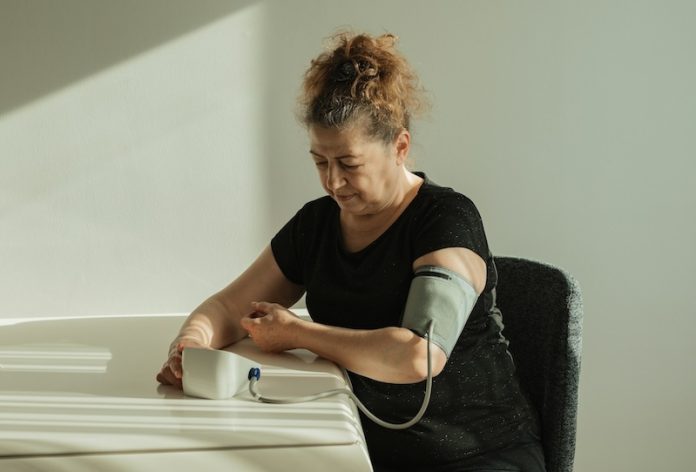
A recent study by scientists from Yale University has uncovered a concerning trend: despite national efforts to control blood pressure, the number of older Americans being hospitalized for sudden and severe spikes in blood pressure has more than doubled over the past 20 years.
This rise in hospitalizations, particularly among Black Americans and those living in the South, highlights ongoing challenges in managing hypertension, a condition that significantly increases the risk of heart attacks, strokes, and other serious health problems.
The study focused on Medicare beneficiaries aged 65 and older, analyzing data from 1999 to 2019 to see if there had been any progress in reducing hospitalizations due to acute hypertension.
Unfortunately, the findings revealed that the situation has worsened. Hospitalizations for these dangerous blood pressure spikes—known as hypertensive emergencies—have increased by 5.6% annually over the two decades.
The increase was even more pronounced among Black Americans, with a 6% annual rise, and this group also faced a threefold higher rate of hospitalization between 2017 and 2019 compared to other populations.
Hypertensive emergencies occur when blood pressure suddenly rises to very high levels, typically with systolic readings of 130 mm Hg or higher or diastolic readings of 80 mm Hg or higher, according to the U.S. National Heart, Lung, and Blood Institute.
Such extreme elevations in blood pressure can quickly lead to serious complications, including heart attacks, strokes, and damage to other vital organs if not treated immediately.
The study’s lead author, Yuan Lu, and her team emphasized the importance of addressing these alarming increases.
They pointed out that while hypertension is a well-known risk factor for cardiovascular disease, the sharp rise in hospitalizations for blood pressure emergencies suggests that many people are either unaware of their condition, not managing it properly, or not receiving adequate medical care.
One of the most striking aspects of the study is the regional disparity in hospitalization rates. The highest rates were found in the South, a region long recognized in medical literature as the “stroke belt” due to its historically high rates of stroke and cardiovascular disease.
This finding underscores the ongoing need for targeted public health interventions in this region, where socioeconomic factors, healthcare access, and lifestyle choices may contribute to the higher prevalence of uncontrolled blood pressure.
The study’s findings are particularly concerning for Black Americans, who not only saw the largest increase in hospitalizations but also have consistently higher rates of hypertension and related complications.
These disparities point to the need for more focused efforts to address the social determinants of health that contribute to higher blood pressure and its complications in this population.
Despite advances in hypertension awareness and treatment, the continued rise in hospitalizations for hypertensive emergencies suggests that current strategies may not be reaching those most at risk.
The study calls for renewed efforts to improve hypertension management, particularly in high-risk populations and regions, to prevent these life-threatening emergencies.
Published in the journal Circulation, this research shines a light on a critical public health issue that requires immediate attention.
With hypertension being a modifiable risk factor for some of the most deadly and disabling conditions, the findings of this study are a stark reminder that much work remains to be done to protect the health of older Americans, especially those in vulnerable communities.
If you care about blood pressure, please read studies about unhealthy habits that could increase high blood pressure risk, and eating eggs in a healthy diet may reduce risks of diabetes, high blood pressure.
For more information about blood pressure, please see recent studies that early time-restricted eating could help improve blood pressure, and results showing 12 foods that lower blood pressure.
Copyright © 2024 Knowridge Science Report. All rights reserved.c



